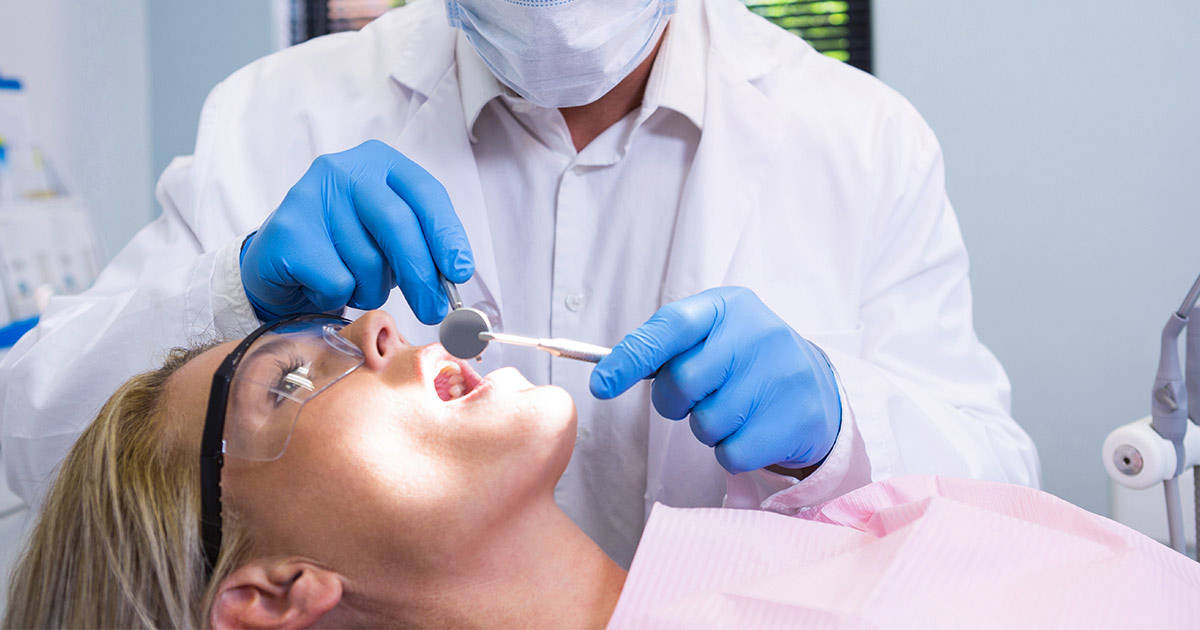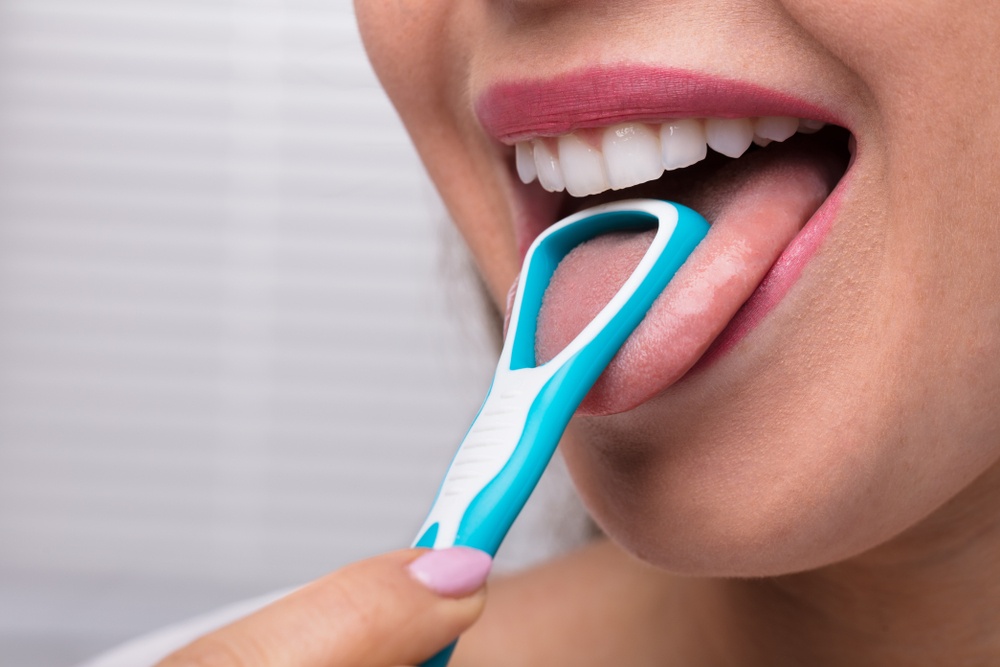
Whether you’re at work, hanging out with friends or just going about your day, having fresh breath gives you an extra boost of confidence. It’s also a reflection of your oral health.
After recently celebrating National Fresh Breath Day 2024, which was held on August 6, our Naperville dentists wanted to share some actionable tips for keeping your breath fresh all day long.
How to Freshen Your Breath
1. Stay Hydrated
Hydration is key to keeping your mouth moist and smelling fresh. Drinking plenty of water throughout the day and swishing with water after eating helps wash away food particles and bacteria, which are often responsible for unpleasant odors in the mouth. Sipping water also stimulates saliva production, providing a natural defense against bad breath.
2. Brush and Floss Regularly
Brushing and flossing every day keeps the bad odors away. Be sure to brush your teeth in the morning and before bed for two full minutes each time using a soft-bristled toothbrush.
As for the best toothpaste for fresh breath, go for one with the ADA Seal of Acceptance, which indicates the toothpaste contains fluoride and that the manufacturer provided clinical evidence to support the product’s safety and efficacy.
Still have bad breath after brushing? That could be because brushing only cleans about 60% of the surface area of your teeth. Flossing is critical for removing plaque and food particles from in between the teeth and around the gumline.
To bring out the best in your breath, you’ll need to floss at least once daily, preferably at night, so nothing is left on your teeth while you’re sleeping and saliva production is slow.
3. Add Mouthwash to Your Daily Routine
Incorporating a quality mouthwash into your oral hygiene routine provides an extra layer of protection against bad breath. Swishing it in the morning and at night gets rid of any lingering bacteria and food.
According to the American Dental Association, when choosing the best mouthwash for fresh breath, look for one that contains active ingredients, such as cetylpyridinium chloride (CPC) or essential oils. These kill the bacteria associated with the unpleasant odors instead of covering them up.
We’d also suggest going for an alcohol-free option, especially if you suffer from dry mouth, because alcohol can dry the oral tissues out, which is a trigger for bad breath.
4. Scrape Your Tongue
Though brushing, flossing and swishing will go a long way in keeping your breath fresh, bacteria also like to cling to the tongue. If your oral health is good, you can get away with carefully brushing your tongue with your toothbrush.
If you have a coating on your tongue from bacterial overgrowth, which can happen if you’re a smoker or you have dry mouth, using a tongue scraper once a day is your best bet.
5. Clean Restorations and Appliances
Be sure to clean dentures and bridges daily. You’ll also want to clean your retainers, mouthguards or Invisalign® aligners before putting them in your mouth. Otherwise, you’re increasing the amount of bacteria in your mouth, which, as we’ve established, is one of the major causes of bad breath.
6. Chew Sugar-Free Gum
A lot of mints and breath sprays mask odors. The benefits are only temporary and, sometimes, your breath is even worse once the effects dissipate. Chewing sugar-free gum is a better way to keep your breath fresh all day.
While chewing sugarless gum anytime will freshen your breath on the go, chewing it after meals is particularly effective. This is because it dislodges food particles and stimulates the flow of saliva, neutralizing acids and preventing smelly bacteria from setting up shop in your teeth.
The best gum for fresh breath is often one that contains xylitol. Xylitol is a natural sweetener that helps to zap cavity-causing bacteria. Strong flavors like mint or cinnamon will have the biggest impact on your breath.
7. Watch Your Diet
Foods and drinks like garlic, onions and coffee are notorious for causing bad breath. The sulfur compounds in garlic and onions are actually absorbed in your bloodstream and released when you exhale, so the effects can last for hours.
Avoid odor-creating foods and beverages before important events where you need to have fresh breath. When you do enjoy them, brush afterwards.
For full-day fresh breath power, opt for smile-friendly foods. Crunchy fruits and vegetables like peppers, apples, carrots and broccoli stimulate saliva, help remove plaque as you eat them and create an inhospitable environment for oral bacteria.
Sugar-free yogurt with probiotic bacteria is another breath freshener. Researchers at Tsurumi University in Japan found that eating it reduced the levels of odor-causing sulfide compounds, most notably hydrogen sulfide, by 80% over six weeks.
Lastly, give herbs a try. Parsley contains chlorophyll, which is thought to have a deodorizing effect on the mouth. Other options like fennel seeds, cloves, mint and anise have been used to freshen breath for centuries as well.
8. Book a Dental Exam and Cleaning
Keeping up with routine dental exams and cleanings is one of the most powerful things you can do to maintain fresh breath and optimal oral health. During professional cleanings, the hygienist uses special tools to remove plaque and tartar (hardened plaque) that regular brushing can’t, leaving your smile clean and odor-free.
Additionally, your dentist can identify any underlying conditions, such as gum disease, cavities or dry mouth that are causing persistent bad breath even after brushing. You can also ask them how to keep your breath fresh all day and they’ll provide you with personalized recommendations based on your unique needs.
How to Keep Your Breath Fresh All Day: The Bottom Line
When it comes to how to keep your breath fresh all day, there are a number of things you can do. Practicing excellent oral hygiene, using a therapeutic mouthwash with active ingredients, watching what you eat and visiting the dentist for routine care will help you maintain fresh breath over the long term.
Schedule a Dental Exam and Cleaning in Naperville
Need more tips for keeping your breath fresh all day? Or ready to take an important step towards a healthier smile and better breath? Book a dental exam and cleaning at Naperville Dental Specialists today!





































